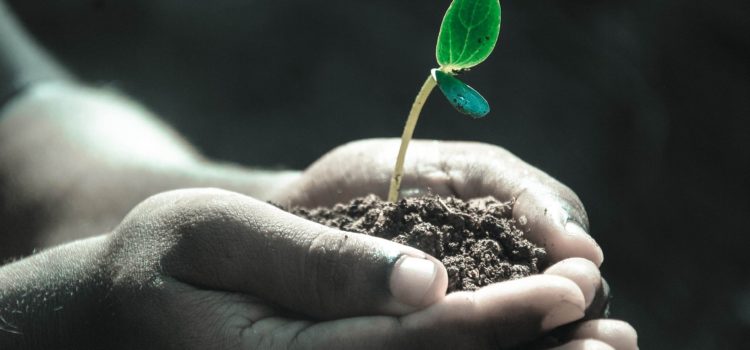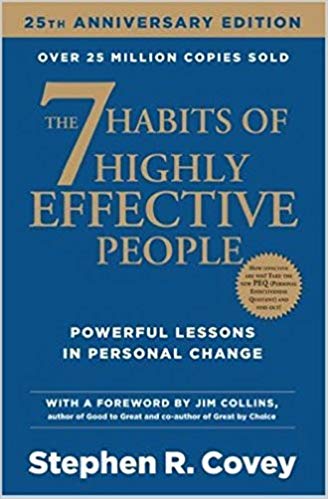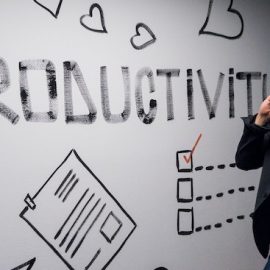

This article is an excerpt from the Shortform summary of "The 7 Habits of Highly Effective People" by Stephen Covey. Shortform has the world's best summaries of books you should be reading.
Like this article? Sign up for a free trial here .
What is Habit 1: be proactive of the 7 habits of highly effective people? What does Habit 1: be proactive mean?
Stephen Covey’s 7 Habits of Highly Effective People starts with Habit 1: Be Proactive. Habit 1, be proactive is a practice that takes discipline, determination, and accountability. Habit 1 will help you work through and apply all 7 habits to be highly effective, and learn how to be proactive in all areas of your life and decision making.
Habit 1: Be Proactive by Choosing How You See Yourself
As humans, we have the power of self-awareness, which means we can think about our own thought processes. Unlike animals, humans are not driven purely by instinct and training. We can examine our behavior and our thoughts, and that ability gives us the power to change our behavior and thoughts by making or breaking habits.
We can rise above our moods, thoughts, and feelings, and make deliberate choices about our views, actions, and attitudes. Most importantly, we can create our self-paradigm, which dictates how we see ourselves.
Your self-paradigm is the most critical paradigm in impacting your effectiveness. If you don’t create your own self-paradigm, you’re left to piece together a self-image that’s based on the opinions and feedback you get from others.
Unless the people around you have cultivated their own self-paradigms, their reactions toward you are more likely to be projections of their own thoughts and fears than a true reflection of who you are. This can leave you with an inaccurate and disjointed image of yourself, which can cause you to behave in dysfunctional and ineffective ways.
If you don’t choose your self-paradigm, you’re likely to submit to that self-fulfilling prophecy. But if you make use habit 1, be proactive, you make a conscious choice to reject their opinions and decide for yourself what’s possible for you, then your efforts and actions will reflect that. Choosing to be proactive unlocks all 7 habits.
You Don’t Have to Be a Victim of Your Conditions or Conditioning
Society and popular culture often tells us that we are the products of our conditions and conditioning — our upbringing, environment, era, culture, and other external influences. However, this popular deterministic view robs us of our personal power to create our own results.
Determinism is based on the stimulus/response theory, the idea that you’re conditioned to respond in a certain way to a given stimulus — just like the dog in Ivan Pavlov’s experiment was conditioned to salivate when he heard the whistle that indicated food was coming. There are three theories of determinism, each of which credits your conditioning to a different source:
- Genetic determinism claims that your DNA dictates your temperament, personality, and other traits. According to this theory, you’re hardwired to be the way you are.
- Psychic determinism says that your parents, upbringing, and experiences mold your character and make you who you are.
- Environmental determinism claims you’re a victim of the people and environment around you. These forces create your situation, and there’s no escaping your situation.
Unlike Pavlov’s dog, humans have four endowments that give you the option to choose your response to a stimulus.
- Self-awareness lets you know that you have a choice outside the stimulus/response theory.
- Imagination gives you the ability to think of an alternative response that gets you closer to the result you want.
- Conscience allows you to understand how well your actions align with your principles.
- Free will gives you the power to choose your response and act outside of your conditioning.
Choosing how you respond allows you to break free of determinism and utilize habit 1: be proactive of the 7 habits.
Practice Habit 1: Be Proactive, not Reactive
In every situation, you have the choice to be proactive or reactive. If you’re reactive, you let your conditioning dictate how you respond to the people and circumstances around you; if you’re proactive, you decide how you’ll respond to create the results you want.
To be proactive requires you to take responsibility for your actions and their consequences. Reactive people allow their physical environment (e.g. the weather) and their social environment (e.g. how people treat them) to determine how they feel and act.
Proactive people experience these external forces too, but they take the inside-out approach, choosing how to respond to those outside conditions. Proactive people exercise the ability to suppress a reactive emotional impulse in order to act in accordance with the values they’ve mindfully chosen, cultivated, and internalized.
Shift Your Paradigm
There are three central values in life: experiential, creative, and attitudinal. The attitudinal is the highest value in life, in terms of creating your own paradigm and learning to be proactive.
Being proactive and taking initiative are actually natural human actions. If your life thus far has been determined by your conditions and conditioning, it’s because you made the choice (consciously or unconsciously) to allow that. But you always have the choice to take a different course.
One simple way to use habit one: be proactive and to start shifting your paradigm is to watch your words: The language we use both reveals and reinforces our attitudes of proactivity or reactivity. Reactive people tend to find evidence to confirm their belief that external forces are determining their life circumstances, and saying “that’s just the way I am” or “that’s just my luck” shows that you have resigned to your circumstances or conditioning.
This creates a self-fulfilling prophecy because you’re not motivated or empowered to do anything about it.
Focus on Your Circle of Influence
There are a million things that may concern you — your children, your work, politics, climate change. That is your Circle of Concern.
How many of those things can you impact? Carefully determine what you have the power to control or influence. That is your Circle of Influence. Habit 1: be proactive is based around seeing yourself and what you value clearly.
Proactive people focus their time and energy on their Circle of Influence. Why waste your efforts spinning your wheels about concerns you can’t impact? On the other hand, if you are reactive, you focus on your Circle of Concern. Spending your mental and emotional energy on things that are outside of your Circle of Influence reinforces feelings of victimization — you are allowing things that are out of your control to determine your actions and emotions. In this way, you are not using habit 1: be proactive of the 7 habits.
Instead, realize that every problem we encounter falls into one of three categories:
- Direct control: These are problems that are directly related to your actions
- Indirect control: These are problems that are related to other people’s actions
- No control: These are problems that you have no ability to impact, including certain circumstances (e.g. the weather) and the past
Proactive people recognize this and choose their response, placing each problem into their circle of influence.
Understand Mistakes and Consequences
While your actions lie within your Circle of Influence, the consequences to your actions are beyond your control. You can’t choose your consequences; at best, you can anticipate them.
Think of an action and its consequence as opposite ends of the same stick: When you pick up one end, the other comes with it. You can’t carry out the action without the consequence following.
By and large, when you act according to your principles, you’ll experience positive consequences. And when you break with these principles, you’ll face the negative consequences.
Proactive people acknowledge their mistakes and learn from them. It’s best to do this as quickly as possible, because the longer you go without learning from a mistake, the more likely you are to repeat it.
In contrast, reactive people try to justify, rationalize, or minimize their mistakes. Doing any of these is an additional mistake; when you try to cover up a mistake, you’re empowering it by putting even more energy toward it.
Make Commitments to Yourself and Others
The power to make and commitments to yourself and others is always within your Circle of Influence. Your ability to make and keep those commitments reveals how proactive you are.
Every time you set a goal — no matter how small — and take the steps to achieve it, you empower yourself to make bigger and more substantial changes in your life. By doing this, you put yourself in charge of your life.
For Habit 1: be proactive, you should challenge yourself to 30 days of proactivity: For one month, focus deliberately on your Circle of Influence. Make small commitments and goals and work to achieve them. When you make a mistake, acknowledge it, correct it if you can, and learn from it.
Remember the foundations of proactivity and approach things from the inside-out. Resist blaming circumstances or other people. Pay attention to the language you use whether it’s reinforcing a reactive or proactive mindset.
———End of Preview———

Like what you just read? Read the rest of the world's best summary of "The 7 Habits of Highly Effective People" at Shortform . Learn the book's critical concepts in 20 minutes or less .
Here's what you'll find in our full The 7 Habits of Highly Effective People summary :
- How to prioritize the hundred tasks you have to focus on the one or two that really matter
- The right way to resolve every disagreement and argument
- How to avoid burning out and succeed over 20+ years






